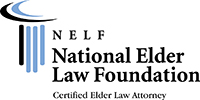The Law Offices of Bradley J. Frigon can assist you in navigating the duties and responsibilities you take on as a guardian, agent, personal representative or trustee ("fiduciary"). We will help you avoid personal liability as a fiduciary that can arise by making an honest mistake with the administration of an estate or trust. The Law Offices of Bradley J. Frigon can save you time and money. With our assistance, you can rest assured that you are in compliance with the Prudent Investor Act, the Income and Principal Accounting Act, and that all Federal and State Income, Estate, and Gift Tax returns will be prepared and filed accordingly.
Proper administrative steps
Proper administration of a decedent's estate involves a variety of steps. When an individual passes away, a personal representative is appointed to handle the administrative tasks of the estate. The personal representative of the estate is legally responsible to ensure that all necessary steps are taken to comply with the laws regarding creditors, taxation, and distribution of assets to beneficiaries.
In Colorado, the personal representative must initially file the Will for probate with the Court of the county in which the decedent resided at the time of his or her death or owned real property. After this step is taken, the personal representative is charged with the responsibilities of opening an estate account from which any claims against the estate are to be paid. The personal representative must also re-title assets from the decedent's name into the name of the estate. To perform these steps, a tax identification number must be acquired from the Internal Revenue Service because the decedent's social security number becomes invalid at death.
There are four primary taxes which may be levied upon an individual at death:
- federal estate tax,
- Colorado estate tax, and
- federal and state individual income taxes, and
- federal and state fiduciary income taxes.
Estate Planning and Trust Administration Attorneys for Wills, Trusts and Estates
With the passage of recent estate tax legislation, the vast majority of estates in this country escape the federal estate tax. Fiduciary income taxes, however, must always be addressed by the personal representative on income generated by estate assets between the date of death and the date of distribution to the beneficiaries. In addition, the personal representative may have the responsibility for filing the decedent's final personal income tax returns.
Within three months from the date of the personal representative's qualification, he or she must submit an inventory of the estate’s assets with the Court. This inventory will contain a detailed listing of the decedent's property passing under the Will. The inventory will also contain market values of the assets or property. Some assets are dollar denominated such as bank accounts, stocks or bonds. Other assets will require the personal representative to have appraisals done to determine the market value as of the decedent's date of death.
To properly conclude an estate, an accounting must be filed with the beneficiaries and in some instances with the Court. Receipts should be obtained from the beneficiaries wherein they acknowledge receiving their share of the estate, discharge the personal representative from further obligation to the estate, and accept pro rata responsibility for any proper debts imposed on the estate subsequent to their receiving the distribution.
Prudent Investor Act
In many cases, a trust is established either as part of a Will or as a separate document. The trustee has a very serious responsibility to all beneficiaries of the trust. The trustee is responsible for complying with the Prudent Investor Act. This law requires the trustee to invest trust assets so that they are preserved but also so that they may grow in value for the benefit of the beneficiaries. Non-professional trustees are best advised to delegate this function to professional trustees or trustee advisors.
Uniform Principal and Income Act
Another law that a trustee must comply with is the Uniform Principal and Income Act. Under this act, certain items are designated as income and other items are designated as principal. This is extremely important under trust law, as the designations affect distributions to beneficiaries.
filing tax returns
In addition to these two laws, the trustee must file the appropriate tax returns. These include trust or fiduciary federal and state income tax returns, and K-1's, which are given to beneficiaries to assist them in preparing their personal income tax returns.
conclusion
The personal representative, an administrator and a trustee have significant personal liability to taxing authorities and to the beneficiaries to perform his or her assigned tasks proficiently. A good faith effort by the fiduciary to be fair and reasonable will not protect the fiduciary from this liability. Serving in any of these capacities is a complex undertaking, which should not be attempted without professional assistance.
Learn more
Learn more by browsing our estate and trust administration articles.
Call (720) 200-4025 now or email us to find out how our Estate and Trust Administration attorneys can adivse you on your fiduciary duties.
Bradley J. Frigon is a Denver Estate Lawyer Firm in Colorado. Our main offerings include: Elder Law Lawyers for protecting assets and an Estate Planning Attorney for all aspects of wills, trusts and estate administration.
Common Tags: Denver CO Estate Planning Lawyer, Trust Attorney Greenwood Village Colorado, Centennial Probate Lawyers, Wills Trusts Arapahoe County, Last Will and Testament, Probate Law Procedures, Fiduciary Relationship and Duty , Legal Responsibilities, Prudent Investor Act, Executor, Uniform Principal and Income, Planners












